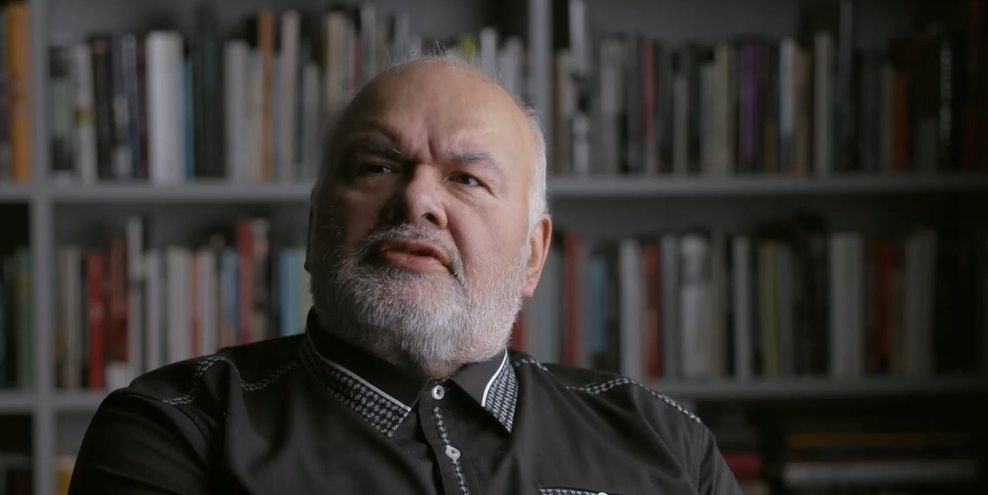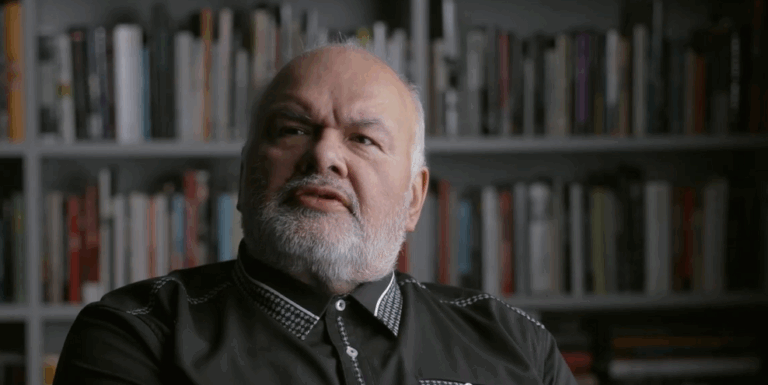Gary Farmer’s drastic physical makeover over the last few years has drawn attention from the public in a way that feels particularly intimate and pertinent to society. Farmer is well-known for his dominant performances in movies like Smoke Signals and Dead Man. He has long been acknowledged for playing parts that carry a lot of emotional and cultural significance. However, his physical health journey—which goes beyond the scale—has garnered media attention recently.
The change is very apparent. Farmer looked noticeably healthier, leaner, and much more agile in recent public appearances, such as his roles as Uncle Brownie in Reservation Dogs. There was a lot of conjecture on fan forums, movie panels, and even GoFundMe updates: Was the change deliberate? Was he sick? Then the news came: Farmer, who had been struggling with health issues, was formally pronounced cancer-free by the end of 2024.
The media and fans started making connections by the end of 2025. Many people estimate that they have lost 50 to 60 pounds because of the consistent weight loss seen in photos comparing appearances from early 2023 to mid-2025. Despite being gradual, the transition was remarkably effective and recommended lifestyle changes as opposed to a quick or dangerous intervention. For fans in their 50s, 60s, and beyond, who frequently feel left behind by the rapid trends of body transformation, this alone made his story more relatable.
Gary Farmer – Personal & Career Profile
| Attribute | Details |
|---|---|
| Full Name | Gary Dale Farmer |
| Date of Birth | June 12, 1953 |
| Age | 72 |
| Nationality | Canadian |
| Ethnicity | First Nations (Cayuga) |
| Known For | Powwow Highway, Dead Man, Smoke Signals, Reservation Dogs |
| Occupation | Actor, Musician, Activist |
| Music Group | Gary Farmer and the Troublemakers |
| Weight Loss Estimate | 50–60 lbs over 18 months (unofficial) |
| Cancer Recovery | Declared cancer-free in December 2024 |
| Health Advocacy | Indigenous lung cancer screening advocate |
| Reference | Wikipedia – Gary Farmer |

The way Gary Farmer’s story relates to more general concerns about wellness in Indigenous communities is what really makes it compelling. Diabetes, obesity, and cardiovascular disease—diseases with their roots in systemic health disparities—are disproportionately prevalent in these groups. Without ever having to speak out, Farmer has subtly raised awareness of these issues by demonstrating improvements in his health.
GLP-1 drugs, such as Ozempic, are thought to have contributed to his ability to control his weight. His journey was in line with a trend that is changing how celebrities and the general public approach weight loss, as evidenced by anecdotal mentions from his partner on social media. The use of these drugs has increased, especially among senior citizens looking for less risky substitutes for restrictive dieting. For many, their success has been greatly increased when combined with mindfulness and physical activity.
However, Farmer’s journey feels rooted in longevity and purpose, in contrast to younger celebrities who might pursue aesthetics. After all, he is a seasoned artist who has made significant contributions to Indigenous media and a pioneer of First Nations storytelling. Although he has never depended on his physical appearance for his performances, the change in his health has obviously given him more energy on screen. This change is not merely apparent; it is profoundly felt.
Stories about weight loss have long been praised in the entertainment industry, from Jonah Hill’s healing body journey to Chris Pratt’s action-hero makeover. However, Gary Farmer’s story is unique since it doesn’t involve a big reveal or a campaign focused on getting attention. Rather, he has demonstrated how culture, aging, and health recovery can all work together to harmoniously influence a person’s next action. The fact that his metamorphosis occurs at a time when Native stories are receiving more attention—a time when programs like Reservation Dogs and Dark Winds are changing popular perceptions—is especially inventive.
Farmer has unwittingly become a wellness icon for Indigenous men by balancing cultural preservation with personal well-being. It’s no small accomplishment. His involvement in health advocacy now has more impact, particularly with regard to cancer screening among Native populations. Public campaigns gain enormous credibility when someone who has battled illness emerges stronger and shows clear signs of improved health.
Health inequalities among Native communities became more painfully apparent during the pandemic. A significant toll was caused by inadequate infrastructure, restricted access to hospitals, and a lack of preventive care. Farmer’s change, which appears to have its roots in sustainable self-care, is now a silent model. He has acted as an example of change without preaching.
Farmer’s strategy has been consistent and secure thanks to wise food choices, more movement, and probably medical supervision. Although he is infamously private, there aren’t many specifics, but it’s obvious that he has made lifestyle decisions that have greatly enhanced his health. In interviews, the actor now projects a lighter, more laid-back manner that is frequently interspersed with humor and cool wisdom.
Physical transformation frequently has more layers for older actors, especially Indigenous actors. It’s important to maintain longevity in a field that far too frequently ignores aging performers in addition to one’s own well-being. The 72-year-old Farmer has significantly expanded his range—not by altering his identity, but by improving his public persona.
A similar sentiment has been expressed in fan comments: “He’s still Uncle Brownie, just faster with a punchline.” This mix of humor and respect shows how much Farmer is still adored and how his health hasn’t caused him to become less connected to the people who made him famous.


